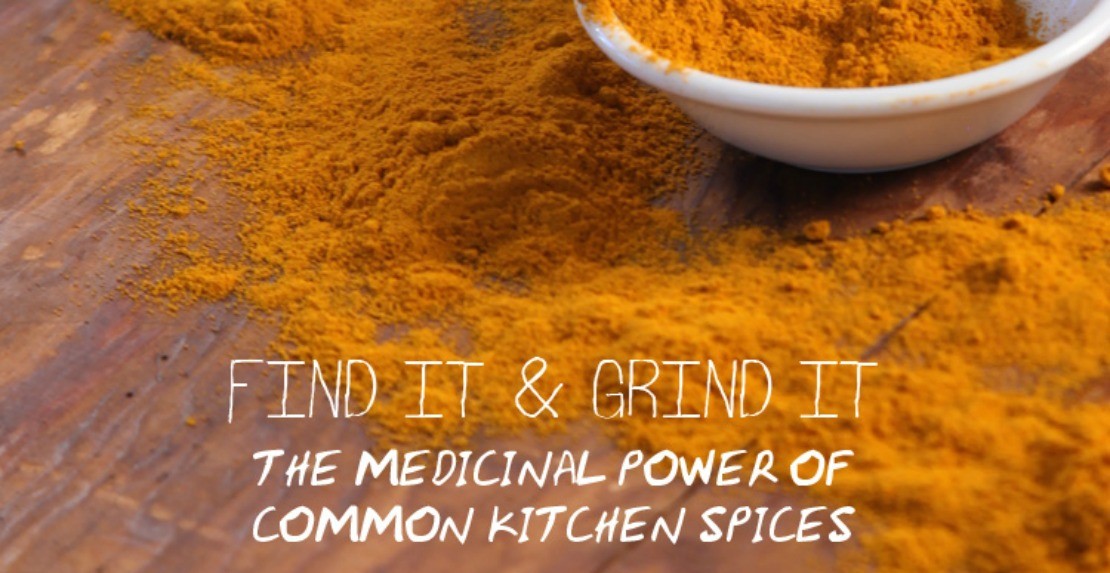
Find It and Grind It: The Power of Common Kitchen Spices
‘Tis the season for heavier eating in New England. Roasts, root veggies, soups, and stews take center stage in keeping us warm for the cold months ahead. But it’s during the holiday months in particular our natural instinct to “pack it on” can go array and leave us feeling bloated, constipated, and foggy in head.
A large part of the daily practice of Ayurvedic medicine takes place right in your kitchen. Whether it’s a root, a fruit, a seed, or a leaf, Ayurveda has a use for it. Actually, Ayurveda probably has a few uses for it! Cook your veggies, grains, legumes, or meat with any combination of these and stoke your agni (digestive fire). Here are my five “top guns” in my spice rack and why you should have them too.
5 Common Kitchen Spices
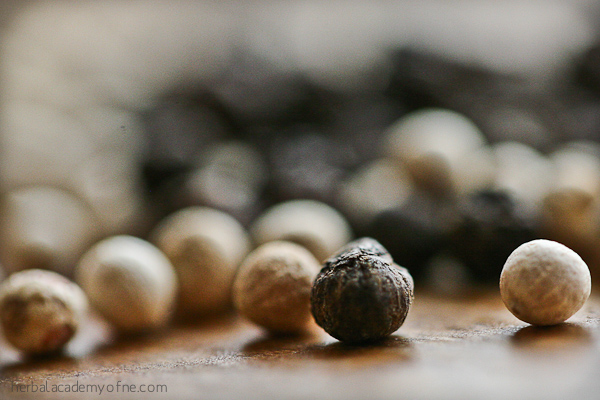
Pepper (black). Pungent and hot, pepper stokes the digestive fire and is used to alleviate loss of appetite, constipation, and dry hemorrhoids. Although black pepper is usually fire-stoking and good for Kapha types, when mixed with ghee and applied topically, it relieves swelling or Pitta conditions such as dermatitis and hives1. Learn more about the uses of black pepper.
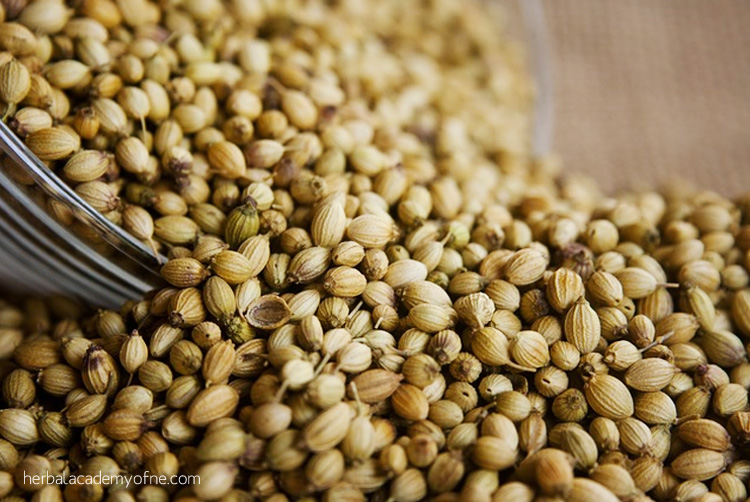
Coriander. A natural diuretic and blood purifier, this plant has cooling properties and is gentle for all of the doshas. Fresh juice and pulp from the leaves (cilantro) can be applied to the skin for rashes, hives, and dermatitis; seeds can be boiled and steeped in water to create a tea especially useful for gas, indigestion, nausea and vomiting1. It is especially good to add to ground coffee/tea to decrease acidity2.
Cumin. Slightly bitter and pungent, this aromatic herb aids in the secretion of digestive juices and relieves abdominal cramps and pain. Commonly used for intestinal disorders such as diarrhea or dysentery, this smoky spice has antibacterial properties and is a source of iron and flavonoids. It also is very good in the promotion of breast milk2. Roast seeds dry or sauté ground cumin in ghee or oil before adding to food. Very balancing for Pitta and Kapha disorders.
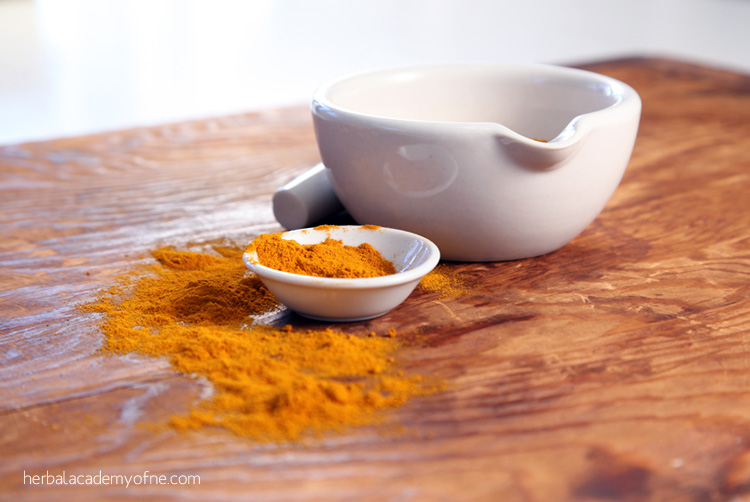
Tumeric. Slightly bitter and pungent, this is a good blood purifier and immunity builder with anti-inflammatory properties. Its active ingredient, curcumin, is suspected to promote cognitive health and act on receptor sites in the brain related to Alzheimer’s3. Inhaling vapors soothes cough and asthma; gargling with water and a pinch of salt can soothe tonsilitis; paste can applied locally for abrasions and bruising/swelling; and capsules are used in the management of Diabetes by normalizing blood sugar levels1. Balancing for Vata, Pitta, and Kapha. Turmeric is the main ingredient in the delicious Golden Milk beverage.
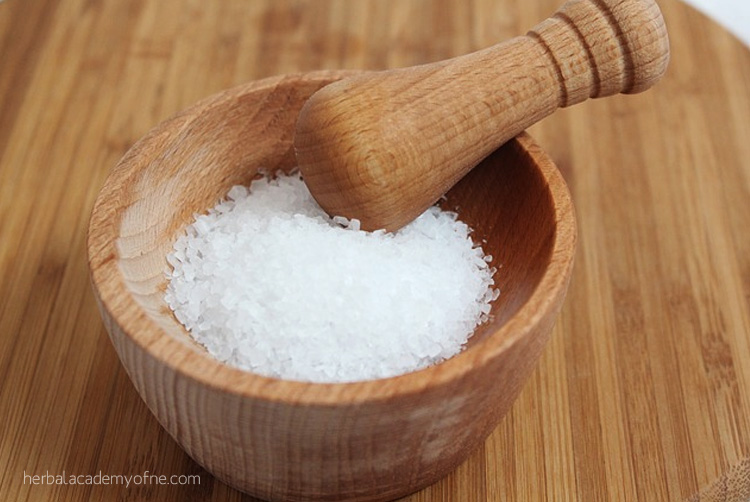
Salt. Its own rasa (taste), this by-product of the sea is essential for human life. It’s responsible for regulating fluid levels in the body, absorbing nutrients across cell membranes, transmitting electrical impulses and aiding in muscle contraction. Rock salt is considered most beneficial for daily consumption, with sea salt also being a more healthy choice than the extremely refined (and iodized) salt available in most stores – which has been cleaned, bleached, and treated with anti-caking agents. Used in moderation, especially for Pitta and Kapha types.
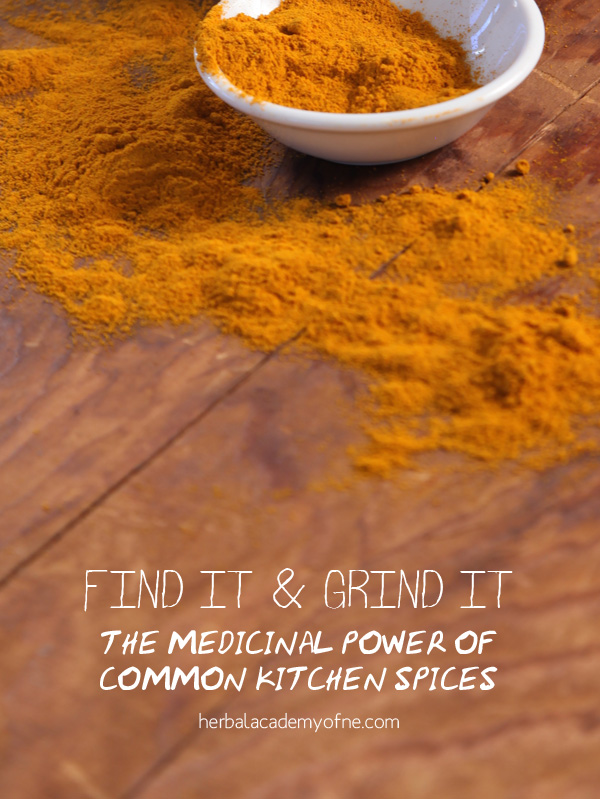
REFERENCES
1 Lad, Vasant. (2004). Ayurveda The Science of Self-Healing. Twin Lakes, WI: Lotus Press
2 Mann, Rosy (2014). Kripalu School of Ayurveda Training Manual. Lenox, MA: Kripalu Yoga Centre
3 Mann, Rosy (2007). Abhyanga Professional Body Training. Lenox, MA: Kripalu Yoga Centre
Kris Quinones is a Licensed Massage Therapist and Certified Yoga Instructor specializing in pain and stress management, and Ayurvedic treatments. She is a member of the National Ayurvedic Medical Association, and founder of Rasayana, LLC, an Ayurvedic treatment and education practice in Davis Square, Somerville. For more Ayurvedic tips and tools for healthy living, sign up for her monthly eNewsletter on her website, or follow her on Twitter or Facebook.







